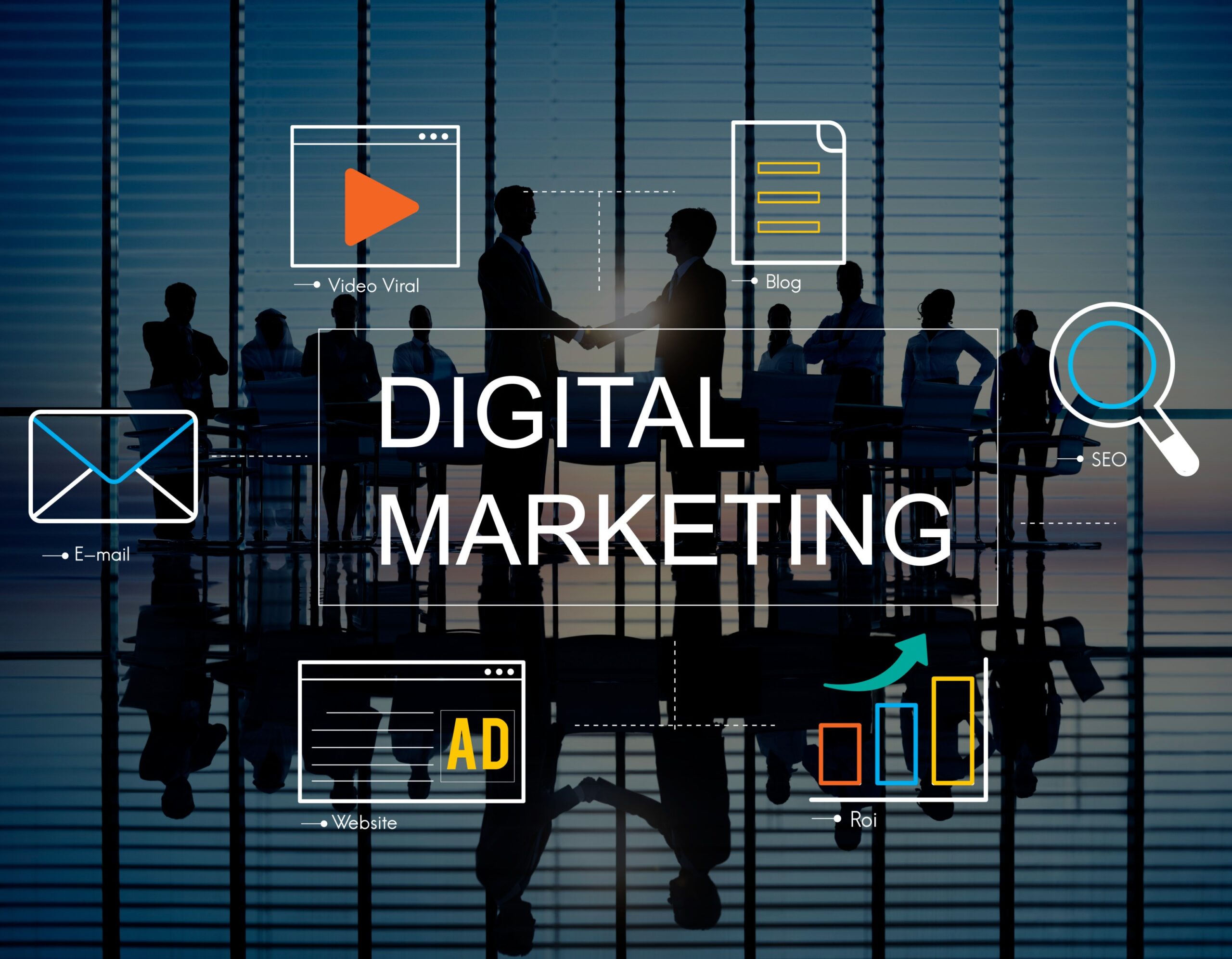Digital marketing is a wide term that includes all marketing efforts carried out through digital channels, such as the Internet, social media, search engines, email, and various online platforms. Unlike traditional marketing, which relies on offline channels like print or TV, digital marketing influences the power of digital technologies to connect with target audiences in real-time.
How Digital Marketing Works
Online Presence: Digital marketing begins with establishing a strong online presence. This involves creating a website that serves as the central hub for your digital activities. A website is like a virtual storefront where potential customers can learn about your products or services.
Search Engine Optimization (SEO): SEO is a crucial aspect of digital marketing. It involves optimizing your website to rank higher in search engine results. By using relevant keywords, creating quality content, and ensuring your site is technically sound, you increase the probability of being discovered by people searching for products or services related to your business.
Content Marketing: Content is king in digital marketing. Creating valuable and relevant content not only helps with SEO but also engages your audience. Blog posts, articles, and other content types can be used to educate, entertain, and inform your target audience.
Social Media Marketing: Social media platforms like Facebook, Instagram, Twitter, and LinkedIn provide powerful channels for reaching and interacting with your audience. Social media marketing involves creating and sharing content on these platforms to build brand awareness, engage followers, and drive traffic to your website.
Email Marketing: Email marketing remains an effective tool for communication. It involves sending targeted messages to your audience to promote products, share updates, or build relationships. Email campaigns can be personalized based on user behavior, preferences, or demographics.
Search Engine Marketing (SEM) and Pay-Per-Click (PPC): SEM involves paid advertising to appear in search engine results. PPC is a specific model where advertisers pay a fee each time their ad is clicked. This allows for immediate visibility and can be highly targeted based on keywords, demographics, and user behavior.
Analytics and Data Analysis: Digital marketing is data-driven. Various analytics tools help track the performance of your campaigns. By analyzing data such as website traffic, user behavior, and conversion rates, you can make informed decisions to optimize and improve your marketing strategies.
Benefits of Digital Marketing
Global Reach: Digital marketing breaks down geographical barriers, allowing businesses to reach a global audience. With the internet connecting people worldwide, you can showcase your products or services to a diverse set of consumers.
Cost-Effective: Compared to traditional marketing methods, digital marketing often requires less investment. Social media, content marketing, and email campaigns can be cost-effective ways to promote your business, especially for small and medium-sized enterprises.
Targeted Advertising: Digital marketing enables precise targeting. Advertisers can tailor their messages based on demographics, interests, online behavior, and other factors. This ensures that your marketing efforts are directed towards the most relevant audience.
Measurable Results: One of the significant advantages of digital marketing is the ability to measure and analyze results in real-time. With analytics tools, you can track the performance of your campaigns, understand customer behavior, and adjust strategies accordingly.
Engagement and Interaction: Social media and other digital platforms provide opportunities for direct engagement with your audience. This interaction can help build relationships, enhance brand loyalty, and gain valuable insights into customer preferences.
Flexibility and Adaptability: Digital marketing allows for quick adjustments to campaigns. If a particular strategy is not yielding the desired results, you can modify it in real-time. This flexibility is crucial in adapting to changing market conditions.
24/7 Accessibility: The internet never sleeps. With digital marketing, your business is accessible 24/7. Potential customers can learn about your offerings, make purchases, or contact you at any time, contributing to a continuous flow of opportunities.
In conclusion, digital marketing is a dynamic and versatile approach to reaching and engaging with your audience in the digital age. Its benefits, including global reach, cost-effectiveness, targeted advertising, and measurable results, make it an essential component of a comprehensive marketing strategy for businesses of all sizes. By leveraging the power of digital channels, businesses can connect with their target audience, build brand awareness, and drive long-term success in the online marketplace.

Leave a Reply